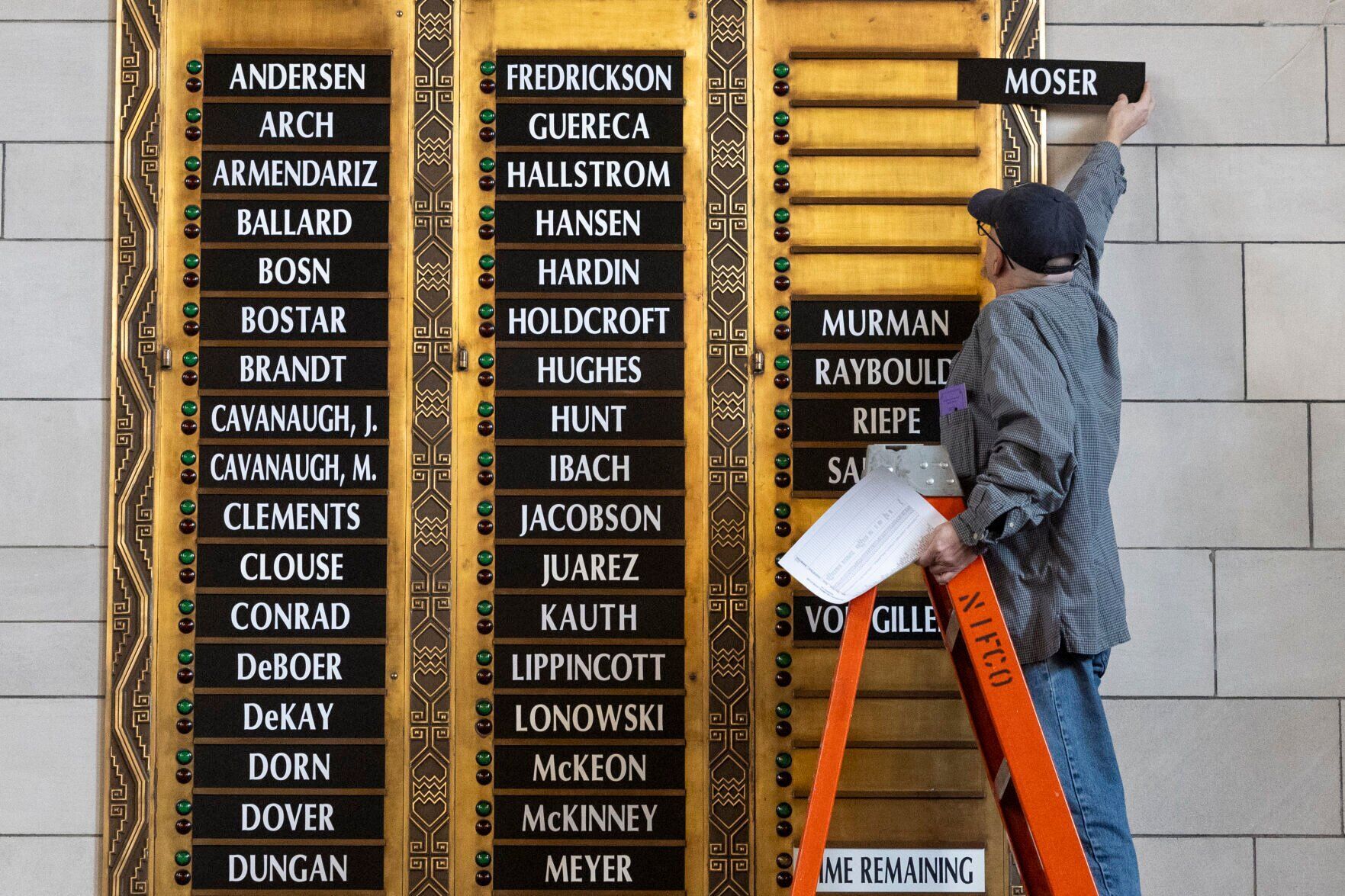As the Nebraska Legislature convenes for its 90-day session, lawmakers are set to navigate a challenging landscape marked by a significant budget shortfall and pivotal social issues. With one-third of its members new to the unicameral body, the session promises shifts in legislative dynamics and critical decisions that will shape the state’s future.
What to watch for as the Nebraska Legislature convenes for 90-day session

Key Takeaways:
- The Nebraska Legislature begins its 90-day session facing a $432 million budget shortfall.
- Sixteen new senators will join the 49-member unicameral body, potentially changing legislative dynamics.
- Major agenda items include property tax relief, K-12 school funding reform, and expanding broadband, housing, and child care.
- Contentious debates are expected on abortion restrictions, transgender youth policies, and Electoral College vote allocation.
- Leadership elections and committee assignments will play a crucial role in shaping the session’s direction.
Nebraska’s Legislature Faces Unprecedented Challenges as Session Begins
As the gavel drops at 10 a.m. on Wednesday, all eyes will turn to the George W. Norris Legislative Chamber in Lincoln. The Nebraska Legislature convenes for its 90-day session amid a formidable $432 million budget shortfall and a slate of contentious issues that promise to test the mettle of the 49-member unicameral body.
Fresh Faces in the Unicameral Legislature
This session marks a significant transition, with nearly one-third of the senators—sixteen newcomers—taking office. The inauguration ceremony will see these new lawmakers, along with returning Senator Dan Quick of Grand Island, sworn in by Chief Justice Jeffrey Funke. The influx of fresh faces is expected to alter legislative dynamics, potentially fostering new alliances and shifts in power structures.
Veteran lawmakers and observers note that the incoming class appears more politically moderate than their predecessors. Many bring limited legislative experience, which could encourage collaboration across party lines as they navigate the complexities of lawmaking. This generational shift offers the possibility of bridges being built rather than burned, as neophyte senators lean on seasoned colleagues.
Major Issues on the Agenda
At the forefront of the session is the daunting $432 million budget shortfall. The Appropriations Committee, led by Senator Rob Clements of Elmwood, faces the arduous task of identifying cuts to balance the budget, a constitutional requirement. This fiscal challenge is anticipated to dominate discussions and could influence the progression of other legislative priorities.
Property tax relief remains a critical concern, with lawmakers aiming to fulfill campaign promises to reduce burdens on homeowners. Efforts to reform K-12 school funding are also on the docket, as the Legislature considers changes that could have lasting impacts on education across the state. Additionally, expanding broadband internet access, and broadening housing and childcare options are key issues that reflect the needs of Nebraska’s communities.
Contentious Social Debates
Beyond fiscal matters, the session is poised to delve into polarizing social issues that have become flashpoints in recent years. Debates over further restrictions on abortion and limitations on transgender youth participating in school activities are expected to resurface. Proposals to alter how Nebraska allocates its Electoral College votes, potentially shifting to a winner-take-all system, add another layer of contention.
These “culture war” topics have the potential to incite lengthy filibusters and impassioned floor debates. Lessons from previous sessions suggest that such discussions could stall legislative progress on other fronts. Speaker John Arch, anticipated to retain his role, may strategize the scheduling of these debates to ensure that essential legislation receives due attention.
Leadership Elections and Committee Assignments
The formation of the Legislature’s leadership will significantly influence the session’s tone and priorities. Elections for key positions, including committee chairs and the influential Executive Board, are set to occur on the session’s opening day. Senator Ben Hansen of Blair has expressed interest in chairing the Executive Board, while Senator Teresa Ibach of Sumner seeks the vice-chair position.
Committee placements, determined by the Committee on Committees, are critical as they shape the legislative agenda and the fate of proposed bills. Past sessions have witnessed procedural disputes over these assignments, with tensions arising from perceived partisan maneuvering. The selection of committee leaders, especially for those overseeing contentious issues like Health and Human Services and the Rules Committee, will be closely watched.
The Challenge of the Budget Shortfall
The $432 million budget gap looms large over the session. The need for significant cuts introduces uncertainty into funding for various programs and may necessitate hard choices from lawmakers. The budgetary constraints could “suck all the air out of the room,” as one lobbyist remarked, potentially sidelining other legislative efforts.
Discussions on property tax rebates are also influenced by the budget situation. Efforts to compensate property owners for a missed rebate due to timing changes in tax credits would require an estimated $750 million, a daunting figure given the current deficit.
Looking Ahead
The convergence of fiscal challenges, an influx of inexperienced legislators, and a lineup of divisive social issues sets the stage for a pivotal session in Nebraska’s history. As lawmakers convene in Lincoln, their decisions will not only address immediate concerns but also set precedents that could shape the state’s legislative landscape for years to come.











